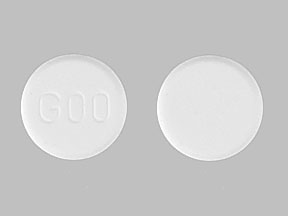Plan B One-Step Interactions
There are 264 drugs known to interact with Plan B One-Step (levonorgestrel), along with 11 disease interactions, and 5 alcohol/food interactions. Of the total drug interactions, 61 are major, 188 are moderate, and 15 are minor.
- View all 264 medications that may interact with Plan B One-Step
- View Plan B One-Step alcohol/food interactions (5)
- View Plan B One-Step disease interactions (11)
Most frequently checked interactions
View interaction reports for Plan B One-Step (levonorgestrel) and the medicines listed below.
- acetaminophen
- Adderall (amphetamine / dextroamphetamine)
- amitriptyline
- amoxicillin
- Benadryl (diphenhydramine)
- cannabis
- cetirizine
- Claritin (loratadine)
- clonazepam
- doxycycline
- famotidine
- Flonase (fluticasone nasal)
- fluconazole
- gabapentin
- hydroxyzine
- ibuprofen
- lamotrigine
- melatonin
- omeprazole
- ondansetron
- prednisone
- propranolol
- Prozac (fluoxetine)
- sertraline
- trazodone
- Tylenol (acetaminophen)
- Vitamin D3 (cholecalciferol)
- Vyvanse (lisdexamfetamine)
- Zofran (ondansetron)
- Zoloft (sertraline)
Plan B One-Step alcohol/food interactions
There are 5 alcohol/food interactions with Plan B One-Step (levonorgestrel).
Plan B One-Step disease interactions
There are 11 disease interactions with Plan B One-Step (levonorgestrel) which include:
- abnormal genital bleeding
- hepatic neoplasms
- breast malignancy
- liver disease
- depression
- fluid retention
- glucose intolerance
- thyroid function tests
- cardiovascular disease
- hyperlipidemia
- weight gain
More about Plan B One-Step (levonorgestrel)
- Plan B One-Step consumer information
- Compare alternatives
- Pricing & coupons
- Reviews (2,802)
- Drug images
- Latest FDA alerts (1)
- Side effects
- Dosage information
- During pregnancy
- FDA approval history
- Drug class: contraceptives
- En español
Related treatment guides
Drug Interaction Classification
| Highly clinically significant. Avoid combinations; the risk of the interaction outweighs the benefit. | |
| Moderately clinically significant. Usually avoid combinations; use it only under special circumstances. | |
| Minimally clinically significant. Minimize risk; assess risk and consider an alternative drug, take steps to circumvent the interaction risk and/or institute a monitoring plan. | |
| No interaction information available. |
See also:
Further information
Always consult your healthcare provider to ensure the information displayed on this page applies to your personal circumstances.


